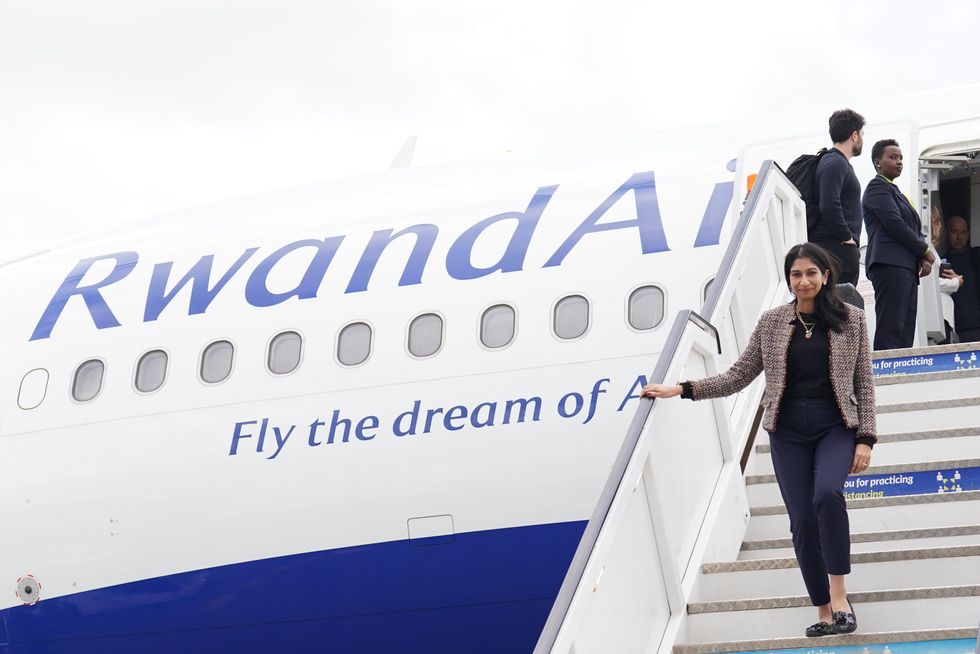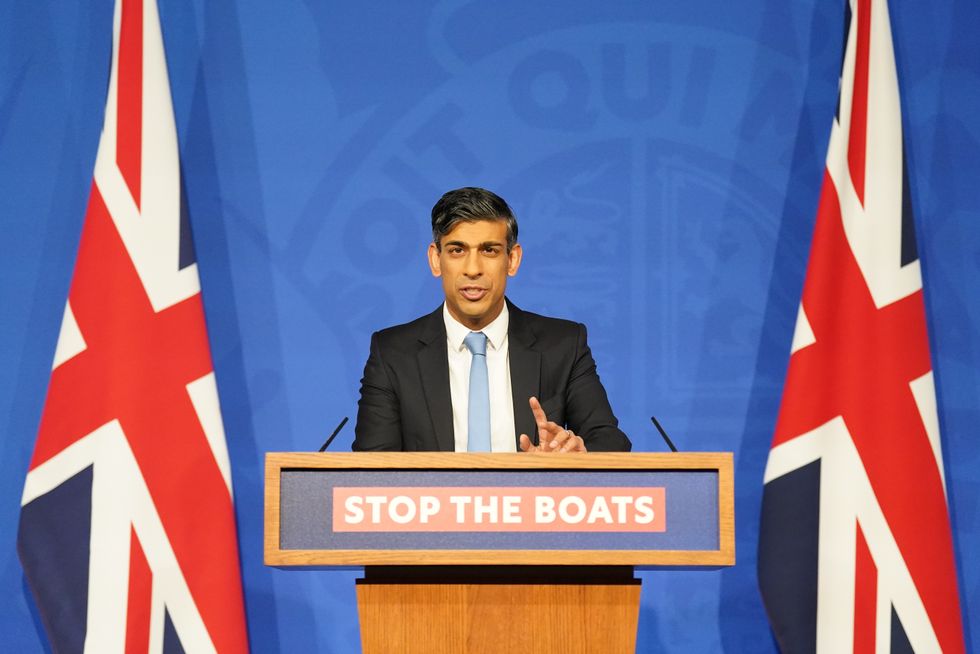Out of the 5,700 set to be sent to the African country, only 2,143 report back to the Home Office
Additional reporting by Millie Cooke
Don't Miss
Most Read
Trending on GB News
The Home Office has admitted that it does not know the location of thousands of migrants scheduled to be sent to Rwanda.
In a document that assesses the impact of the Migration and Economic Development Partnership with Rwanda, the Home Office said the Government had retained numerous people who had been told their asylum claims were inadmissible and could be removed to the African country once the new law came into effect.
"Of the 5,700 people Rwanda has in principle agreed to accept, 2,143 continue to report to the Home Office and can be located for detention," the document said.
The government has denied claims it's trying to find missing asylum seekers after a report suggested that more than half of the illegal migrants set for deportation to Rwanda could not be located by the Home Office.
 The Home Office has admitted that it does not know the location of thousands of migrants scheduled to be sent to RwandaPA
The Home Office has admitted that it does not know the location of thousands of migrants scheduled to be sent to RwandaPAReacting to the Home Office's admission, former home secretary Priti Patel said: "Removing to Rwanda those who have come to the UK illegally to claim asylum is a vital measure to protect our borders, disrupt the business model of evil people snuggling gangs and the deterrent effect will save lives.
"To support our removals plan and the Rwanda partnership, the Government should have been increasing the number of detained sites and Greek style reception centres, which were in the New Plan For Immigration I developed when Home Secretary.
"New detained facilities were needed instead of non-detained sites like Wethersfield.
"I know Ministers are now looking to increase detained capacity as well as implementing the Nationality and Borders Act measures like the one stop shop to fast track asylum applications, appeals and removals."
The Government said there is no limit on the numbers that could be deported under the five-year asylum deal, and Rwandan President Paul Kagame's government said it would take as many migrants as Britain sends its way.
The cohort is made up of people arriving in the UK between January 1, 2022, and June 29, 2023 - when the Supreme Court found that the removal of asylum seekers to Rwanda was, based on the evidence reviewed at that time, unlawful.
The document said: "We did not assess there to be a significant impact of this delay on individuals with protected characteristics specifically, and the delay can be justified as a proportionate means of achieving the legitimate aim to maintain the cohort of individuals who may be eligible for relocation.
"The Home Office committed to resuming decision making in respect of this group upon the coming into force of the Safety of Rwanda Act and the UK-Rwanda Treaty, at which point removals of individuals in this group to Rwanda can take place."
LATEST DEVELOPMENTS:
According to the figures just over 2,100 identified for removal are in touch with authorities out of 5,700 asylum seekers.
All had been told their asylum claims were inadmissible - but more than half have now stopped reporting to the Home Office.
It comes after the Rwanda Bill became law last week when it was finally granted Royal Assent in the House of Lords. The announcement has triggered the formal start of the plan to fly illegally arrived migrants to Rwanda, with flights being expected to take off in 10 to 12 weeks.
The Prime Minister believes the new plans will stop people from making the dangerous trip across the Channel from France. However, critics say the policy is inhumane, and further court challenges are likely.

The Prime Minister believes the new plans will stop people from making the dangerous trip across the Channel from France
PAThe Irish government has said the threat of being sent to Rwanda was causing migrants to come to Ireland, prompting them to bring forward new legislation which would enable asylum seekers who cross the border from Northern Ireland to be sent back to Britain.
The UK has slapped down Ireland's plan to return migrants who have crossed the border to avoid being sent to Rwanda, saying Britain is not "going to start accepting returns".
Speaking ahead of a lunchtime press conference, Downing Street said it is up to the UK Government to decide who is allowed to enter the country, despite any legislation the Irish government may pass.
The Prime Minister’s official spokesman said: "Even if Ireland was to pass legislation, it is up to the UK Government to decide who we do and don’t accept into the country and, clearly, we aren’t going to start accepting returns from the EU just as the EU doesn’t accept asylum returns from the UK to France."









